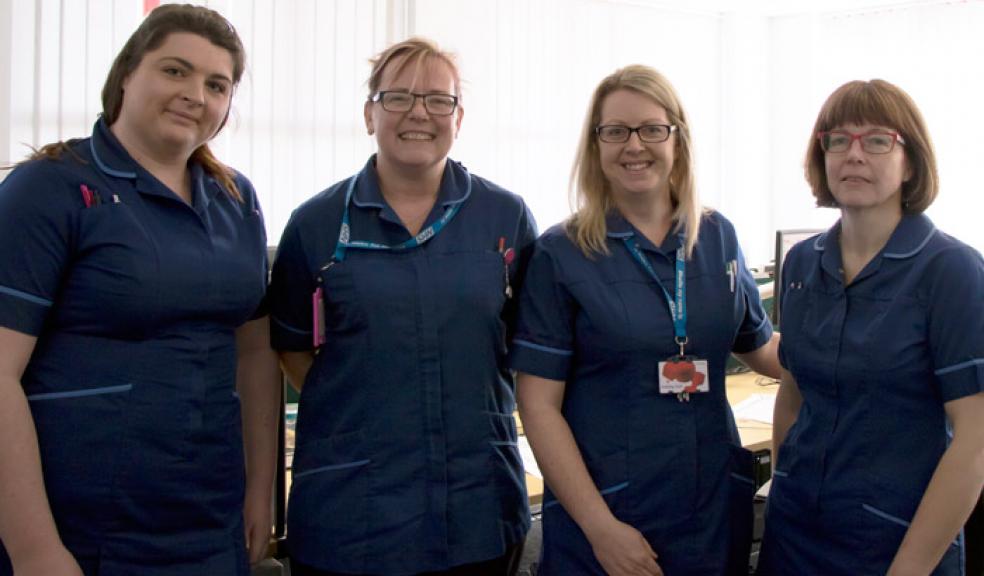
Maternity care in Plymouth continues to be highly rated by mothers
The maternity care at University Hospitals Plymouth NHS Trust continues to be highly rated by mothers, according to a national survey published today. In some areas, our Trust has been rated as one of the top performing nationally.
The Care Quality Commission (CQC) National Maternity Survey is a nationwide review of all aspects of maternity care. Nearly 5,000 women have some or all of their maternity care delivered by University Hospitals Plymouth NHS Trust staff each year.
Our maternity department was one of the highest rated in response to questions about women being given enough guidance during their pregnancy. In particular, mothers reported receiving the right amount of information about where to have their baby and postnatal aftercare.
University Hospitals Plymouth was one of the highest performing Trusts in the UK for involving mothers in decisions about their antenatal care, with 100% of women reporting that they felt listened to by their midwives during check-ups. Women also said that midwives were supportive and listened to them after the birth.
Midwives at University Hospitals Plymouth Our Trust is rated #2 with regards to allowing women to move around during labour and to find the most comfortable position. Mothers are also strongly encouraged to have skin to skin contact with their baby shortly after delivery, which is important for a number of reasons, including the regulation of a newborn’s breathing and heart rate, as well as helping to build up an immunity to infections.
“We are once again delighted at such a fantastic set of results”, said Sue Wilkins, Director of Midwifery and Associate Director of Nursing. “They are clearly a testament to the exceptionally supportive and caring team here within the Maternity department.”
The last CQC survey took place in 2017. This year the results highlighted that University Hospitals Plymouth had ‘improved significantly’ in a number of areas, including midwives checking on mental health during pregnancy. In comparison to the previous year, 100% of women said they were now spoken to in a way they could understand when giving birth.
The report has, however, shown that some women felt that they weren’t given the right advice and support at the start of their labour.
“We would like to thank all women and their families who took the time to complete the CQC survey last year. This information is vital for the ongoing development of our services and we are starting work immediately to look at the improvements that could be made to strengthen the areas where we did not perform quite so well.”
This is the sixth survey of its kind. It offers all Trusts the opportunity to receive feedback on their service from every woman who delivers in a designated month. In February 2018, 97 women who gave birth under the care of University Hospitals Plymouth returned the survey. All aspects of their maternity care, from the first time they saw a clinician or midwife, during labour and birth, through to the care provided at home in the weeks following the arrival of their baby, were covered in the questions asked.
The 2018 survey of women’s experiences of maternity services involved 129 NHS Trusts in England. More than 17,000 (36.8%) of service users in the UK, aged 16 or over, that were asked responded.
To see the full report click here: www.cqc.org.uk/maternitysurvey
The maternity care at University Hospitals Plymouth was also highly rated in a recent collaborative study with the University of Manchester, looking at the experience of women expecting their first child aged 35 and above.
“Although participants were not directly asked for their views on their care, many women were keen to express how positive they found their antenatal care, provided by University Hospitals Plymouth, both in the community and in the hospital,” explains Clara Southby, Clinical Midwife who co-authored the study, published in the journal Midwifery this month. “In particular, many women reported feeling reassured by their health care professionals about their concerns, thus reducing their anxieties.”
Read more about the study here: https://www.midwiferyjournal.com/article/S0266-6138(18)30279-1/abstract













